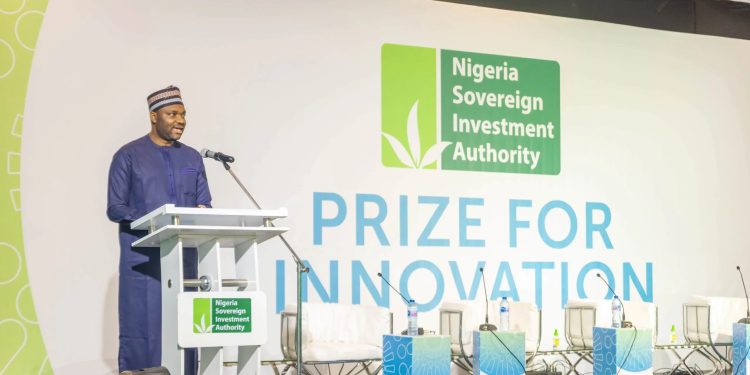The Nigeria Sovereign Investment Authority (NSIA) has unveiled plans to invest up to $1 billion over the next three years, with a focus on developing solar and healthcare infrastructure. The strategic investment aims to bolster economic growth in Africa’s most populous nation and contribute to bridging the country’s infrastructure gap.
In an interview on Monday, Aminu Umar-Sadiq, the Chief Executive Officer of NSIA, revealed that the organization is currently raising funds both internally and from partners to implement these transformative projects. While NSIA will contribute a portion of the investment, Umar-Sadiq indicated that the remaining funds would come from undisclosed partners, citing confidentiality.
Nigeria, as the largest crude producer in Africa, faces a significant infrastructure deficit. Estimates by the World Bank suggest that the country needs to allocate at least $100 billion annually to address its infrastructure gaps. With nearly half of Nigeria’s population lacking access to grid electricity, substantial investments exceeding $400 billion are required to develop power generation, transmission, and distribution infrastructure. These developments are crucial to reduce the nation’s reliance on fossil fuels and achieve its net-zero targets by 2060.
Umar-Sadiq emphasized that the NSIA’s investment strategy aims to accelerate economic and energy diversification in Nigeria by 2026. The fund will allocate resources to sectors such as healthcare, gas industrialization, technology, power, and agriculture. By focusing on areas of pressing need, NSIA aims to make a substantial impact while mitigating potential losses in an increasingly uncertain global market.
As one of Africa’s largest funds, NSIA is realigning its resources to prioritize infrastructure and is considering investments in inflation-linked bonds in the United States and Europe to secure stable returns. This strategic shift follows a 33% decline in NSIA’s 2022 earnings due to rising interest rates, surging food costs, and market volatility.
NSIA has already embarked on notable projects, including a $1.4 billion co-development of an ammonia plant with Morocco’s OCP SA. It has also partnered with US-based BIO Ventures for Global Health to establish a $22 million cancer treatment facility in Nigeria. Additionally, NSIA signed an agreement with Vitol Group this year to support the country’s energy transition plan.
Umar-Sadiq revealed that NSIA intends to expand renewable energy access throughout Nigeria, building upon the successful establishment of a 10-megawatt solar power plant in Kano state in 2022. The CEO stressed that healthcare infrastructure for chronic ailments will also be a priority in their investment agenda.
“The NSIA has achieved phenomenal impact over the past 10 years, and we are determined to continue making significant contributions in infrastructure development,” Umar-Sadiq affirmed.
The NSIA’s ambitious investment plans underscore its commitment to driving sustainable growth and advancing critical sectors in Nigeria, ultimately benefiting the nation’s economy and its citizens.











